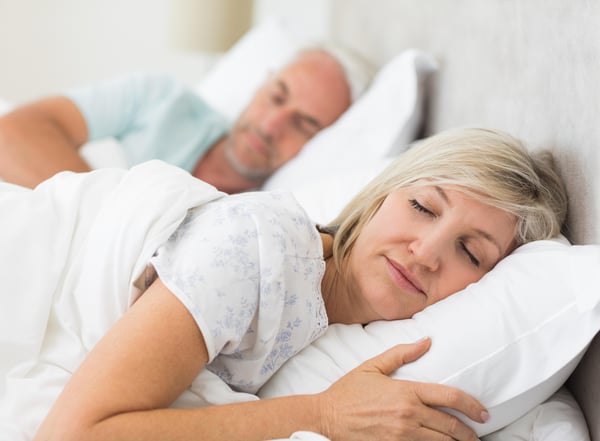Transition to Standard Time Tied to Short-Term Increase in Sleep Disorders

THURSDAY, May 4, 2023 (HealthDay News) -- The transition from daylight saving time (DST) to standard time (ST) is associated with a transient increase in sleep disorders, according to a study published online May 3 in Neurology.
Sheida Zolfaghari, M.D., from McGill University in Montreal, and colleagues compared sleep symptoms among 30,097 participants aged 45 to 85 years who were interviewed in different seasons and before and after the transition into DST and ST.
The researchers observed no difference in dissatisfaction with sleep, sleep onset, sleep maintenance, and hypersomnolence for participants interviewed in different seasons. Slightly shorter sleep duration was reported by those interviewed in summer versus winter (6.76 ± 1.2 versus 6.84 ± 1.3 hours). No difference in sleep symptoms was reported for participants interviewed one week before versus one week after DST transition, except for a nine-minute decrease in sleep duration a week after transition. Those interviewed a week after versus a week before transition to ST reported more dissatisfaction with sleep (28 versus 22.6 percent), higher sleep-onset insomnia (7.1 versus 3.3 percent), higher sleep-maintenance insomnia (12.9 versus 8.2 percent), and more hypersomnolence with adequate sleep (7.3 versus 3.6 percent; adjusted odds ratios, 1.34, 2.26, 1.64, and 2.08, respectively).
"As disruptive as these transitions may feel in the short term, there may be few long-term implications of the repeated switch back and forth from daylight saving time to standard time," a coauthor said in a statement.
Several authors disclosed financial ties to the pharmaceutical industry.
Abstract/Full Text (subscription or payment may be required)
Related Posts
Stress Before COVID Infection Could Raise Odds for Long COVID
THURSDAY, Sept. 8, 2022 (HealthDay News) -- As scientists around the world...
¿De verdad necesita una rinoplastia? Los selfis distorsionan los rasgos faciales, según un estudio
VIERNES, 8 de abril de 2022 (HealthDay News) -- Con la llegada de los teléfonos...
La lactancia podría proteger al corazón de mama años más tarde
MIÉRCOLES, 12 de enero de 2022 (HealthDay News) -- Chloe Jo Davis es una franca...
Lograr que los niños vayan a la escuela a pie y en bicicleta conduce a una buena aptitud física a largo plazo
VIERNES, 9 de septiembre de 2022 (HealthDay News) -- Los niños que van a la...
